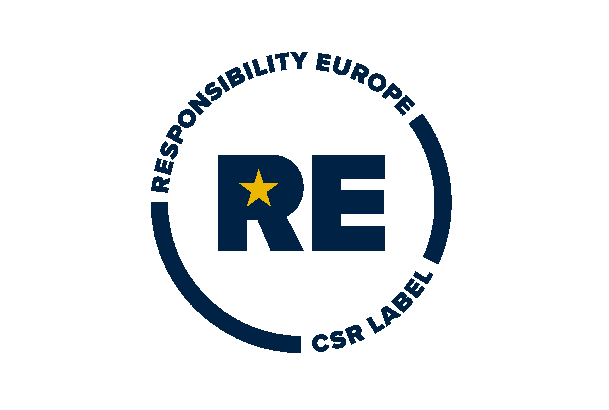How can you keep your CSR strategy ongoing?
A CSR strategy is no different from any other strategy in as much as it is not static. When it is defined, the starting point is based on the current situation. Today’s pandemic has shown how much can change from one moment to the next. This is not only destabilising, but also likely to render your strategy inappropriate – even impossible to achieve. Even under “normal” circumstances, a strategy will need to be revised at regular intervals to check progress and coherence with other interrelated factors. Do you need to reappraise your priorities? Are the deadlines still feasibly achievable? Are the defined topics still relevant in the current corporate context?
Find your why
At MindForest, we worked on our strategy and rollout for many months before applying for initial certification.This was firstly because we needed to familiarise ourselves with the challenges involved and secondly because we needed to allow sufficient time to implement the necessary internal structures and communicate about the policy with our colleagues. In this way, we tackled the challenge in much the same way as one would set about implementing any change project:
If you don’t explain “why”, it will be difficult to gain support.
Celebrating success
We were very proud of our team achievement when we gained initial certification and the whole CSR committee attended the award ceremony. Afterwards we thanked our colleagues for their support, as without this the whole approach would not make any sense. We were lucky enough to be able to benefit from monthly team meetings to communicate about what we were implementing and also invited a different colleague to our committee meetings. The latter serves several purposes: knowledge sharing about what exactly the committee does; benefitting from an “external” view and also – if possible – gaining new members for the committee.
In many ways, explaining what a CSR strategy entails was the most challenging aspect. At a glance, most people think initially of environmental aspects and of course there are limits to how much a consulting company can contribute to such a context.
But once everyone understands that a CSR strategy can make a huge contribution to the perennity of the very company they depend on for employment, then employees generally become more interested and willing to become involved.
Small steps with great impact
At the very first audit, we were praised for testing new products and services internally before making them available to our clients. For example, we appraised the onboarding approach, talked to recent new joiners and under their guidance made changes. In fact, the “old” system was pretty good, it had worked, but that did not mean there was no room for improvement!
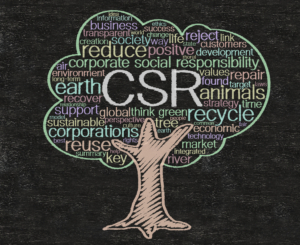
On the contrary, thanks to the additional information we gathered, we were able to improve the overall experience…
… by introducing a dedicated booklet to accompany the new employee throughout the first six months of their employment, and we also worked on better defining the roles of their tutors in this process. Since then, this “service” has been reappraised and modified to suit the current remote context. Importantly for MindForest, on several occasions we have been able to share this experience with our clients. This is one small example of how our CSR strategy focusses on internal HR topics and can subsequently serve to benefit our clients.
The challenge of remote working
As already mentioned, any strategy needs to be flexible. As part of our ‘social’ strategy, we devised a wide variety of interactions and events with our colleagues in the MindForest team, these ranged from monthly table football/table tennis tournaments with shared pizza, to afterworks, themed cooking experiences where part of the team prepared a meal for the rest of the team and weekly internal meetings to discuss project challenges in a more informal manner. Then came Covid! With everyone working from home these events in their original form were no longer possible, so we had to be creative. With a little help from Zoom and Slack, we diversified to virtual coffee breaks, online afterwork quiz challenges, virtual Secret Santa and internal meetings with the video function on. Meetings started with a little social interchange and everyone could see each other, this always seemed very important and really helped to bridge the gap and reduce the risk of isolation.
One year on, they are all a fixed feature in our agendas, the team continues to interact well, and we have added a new internal newsletter to spread positive news about what we are all up to,
which is also shared with colleagues on maternity leave and/or sick leave. Of course, we are all looking forward to the first real afterwork, but in the meantime we have adapted to keeping in touch virtually.

Next steps
We are currently preparing our request for recertification and have been sharing details of this with the team.This also provides an excellent opportunity to review the past three years (the period between each certification) and assess what we have achieved. Some aspects are more measurable than others, for example the number of internal meetings. We have considerably reduced our ecological impact by abolishing plastic bottles and opting for a filtered water fountain. Whereas others, such as our internal engagement project, are more difficult to assess in the short term, but we are measuring overall employee satisfaction, as well as the feedback we receive from regular personal exchanges with all the team. Similarly, the introduction of a centralised knowledge sharing document management system has been extremely beneficial to workflows. In short, every day our team benefits from the work of the CSR committee and this undoubtedly serves to underline the need for an ongoing CSR strategy.
As we include in our mail signatures: “Engagement in durable development is no longer a matter of choice”.
Let us help you
If you would like to get support in implementing or keeping your CSR strategy on track...
WANT TO RECEIVE OUR LATEST THOUGHT LEADERSHIP CONTENT?
Related posts
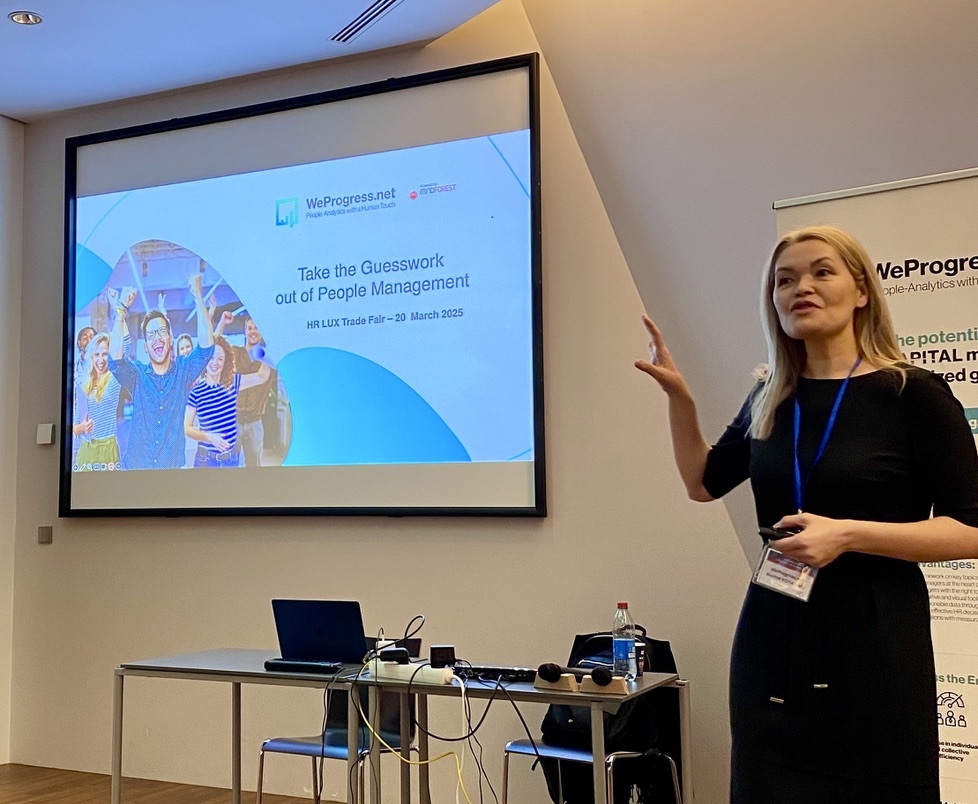 Take the Guesswork out of People Management
Take the Guesswork out of People Management
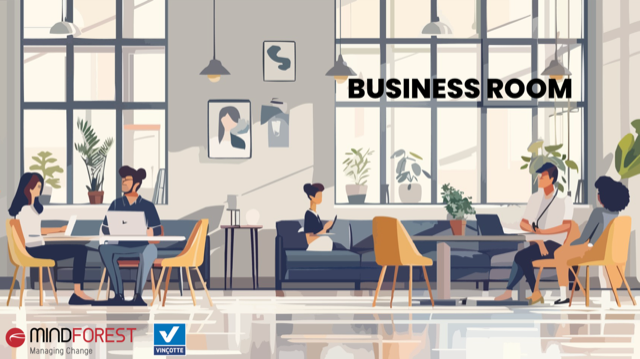 From processes to people: achieving quality
From processes to people: achieving quality
 Daring to lead Positive Transformation: What if Positive Emotional Capital was your key to sustainable change?
Daring to lead Positive Transformation: What if Positive Emotional Capital was your key to sustainable change?
 Why hire Change management professionals? We can do it alone!
Why hire Change management professionals? We can do it alone!
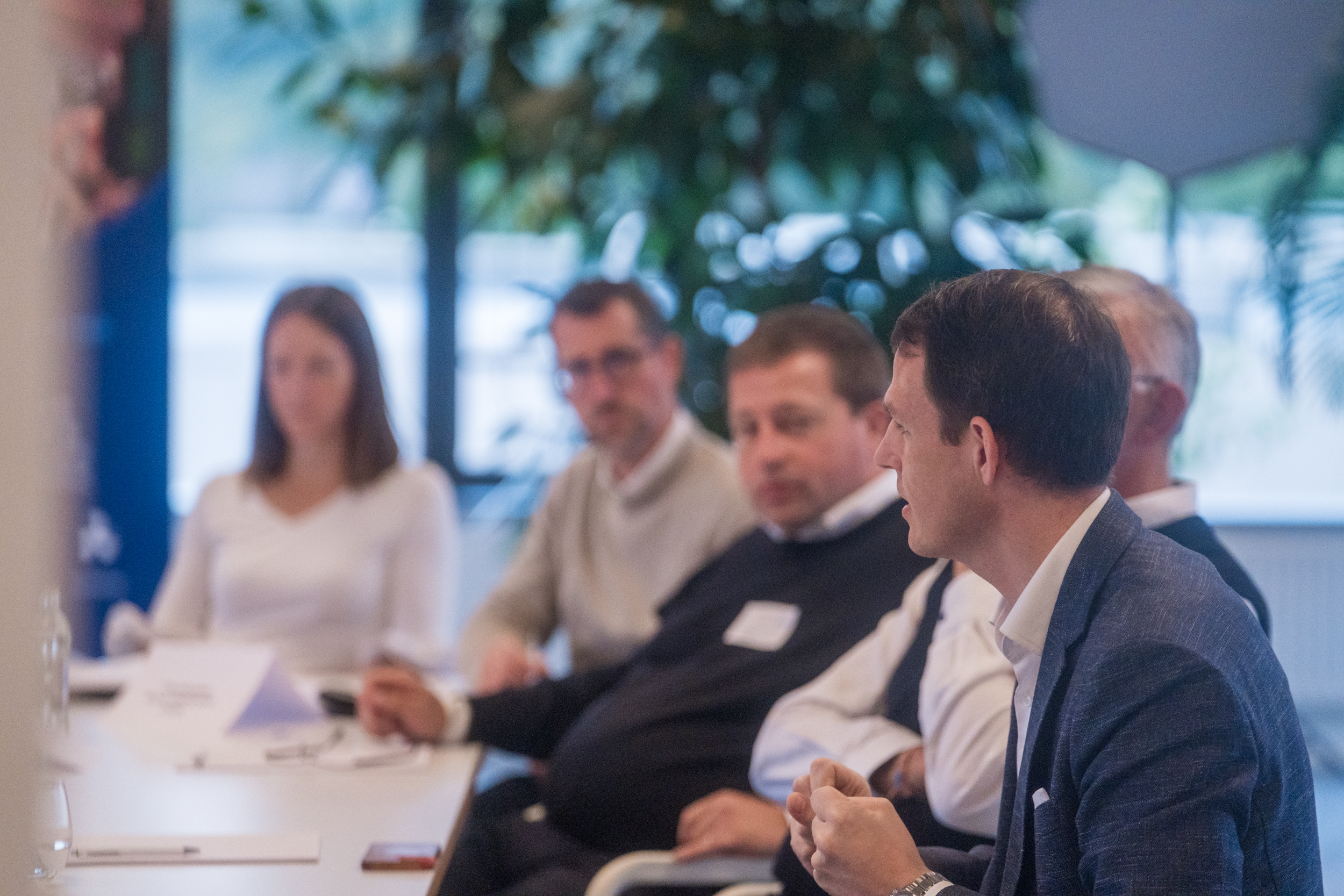 Digital Transformation and Change Management: Lessons shared in an event hosted by Cebi and MindForest
Digital Transformation and Change Management: Lessons shared in an event hosted by Cebi and MindForest


